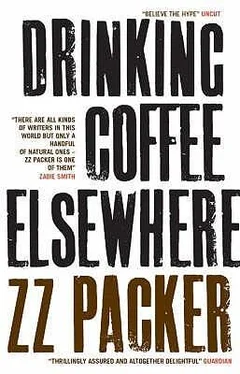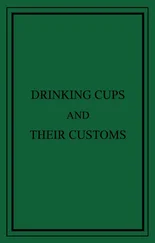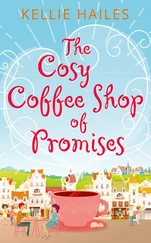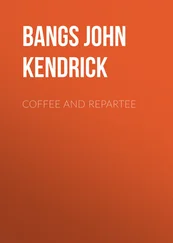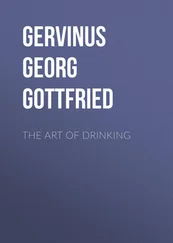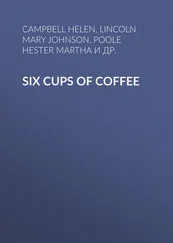My father hands me two cages. He hefts two. While the morning commuters eye us, he breaks down the bird prices loudly, as though we’re the only people in the world.
When we get to the Mall, all you can hear from where we stand are African drums, gospel music blaring from the loudspeakers, and someone playing rap with bass so heavy it hurts your heart. Everything has an early-morning smell to it, cold and wet with dew, but already thousands have marked their territory with portable chairs and signs. Voter registration booths are everywhere; vendors balance basketfuls of T-shirts on their heads; D.C. kids nudge us, trying to sell us water for a dollar a cup. The Washington Monument stands in front of us like a big granite pencil, miles away, it seems, and everywhere, everywhere, men shake hands, laugh like they haven’t seen one another in years. They make pitches, exchange business cards, and congratulate one another for just getting here. But most of all they speak in passwords: Keep Strong, Stay Black, Love Your Black Nation .
The birds are so unnaturally quiet I can’t tell if they don’t mind being jostled about amid the legs of a million strangers or if they’re dying. As we work our way through the masses, Ray Bivens Jr. keeps looking off into the distance in perpetual search for the perfect customer. I try to follow my father, but it’s hard to plow through the crowd holding the cages.
“Brother,” one man says, shaking his head at me, “I don’t know if them birds males or not, but they sho ain’t black!”
I nod in my father’s direction and say, “Looks like you’ve got a customer.”
He shoots me an annoyed look. “Let’s split up,” he says. “We’ll cover more area if we’re spread out.”
“O.K., chief,” I say. But I pretty much stay where I’ve been.
AFTER A few speeches from Christian ministers, a stiff-looking bow-tied man gives an introduction for Farrakhan and the Nation of Islam. I’m so far back that I have to look at the large-screen TVs, but as Farrakhan takes to the stage, the Fruit of Islam phalanx behind him applauds so violently that their clapping resembles some sort of martial art.
I make my way toward the edge of the crowd to get some air. Though I’m already as far from the main stage as one can be, it still takes me a good half hour to push through the crowd of men, most of them patting me on the back like uncles at a family reunion. Although I’ve seen a sprinkling of women at the march, some black women cheer as they stand on the other side of Independence Avenue, but others wave placards reading “Let Us In!” or “Remember Those You Left Home.” Quite a few whites also stop to look as if to see what this thing is all about, and their hard, nervous hard smiles fit into two categories: the “Don’t mug me!” smile, or the “Gee, aren’t black folks something!” smile. It occurs to me that I can stay here on the sidelines for the entire march. A hush falls over the crowd, then they erupt into whistles and cheering and catcalls, and though I can barely see the large convention screen anymore, people begin chanting, “Jesse! Jesse!”
I look at the screen and see him clasping hands with Farrakhan, but he doesn’t do much more than that. If anything, I’d like the chance to hear him speak in person, purely for speech and debate purposes, but it seems as though the day will be a long one, with major speakers bookended by lesser-known ones.
Now a preacher from a small town takes to the platform. “Brothers, we have to work it out with each other! How are we going to go back to our wives, our babies’ mothers, and tell them that we love them if we can’t tell our own brothers that we love them?”
At first it sounds like what everyone else has been saying, breaking a cardinal rule of public speaking: One should reiterate, not regurgitate. He reads from a letter written in 1712 by William Lynch, a white slave owner from Virginia. It occurs to me that Farrakhan read from this same letter, the content of which got lost in his nearly three-hour speech. The letter explains how to control slaves by pitting dark ones against light ones, big plantation slaves against small plantation slaves, female slaves against male ones. The preacher ends by telling everyone that freedom is attained only when the ant of the self — that small, blind, crumb-seeking part of ourselves — casts off slavery and its legacy, becoming a huge brave ox.
“Well, well, well!” An elbow nudges me. “Wasn’t that powerful, brother?” A man wearing a fez extends his hand for me to shake.
I shake his hand, but he doesn’t let go, as if he’s waiting for me to agree with him.
“Powerful!” the fezzed man shouts above the applause.
“Yes,” I say, and turn away from him.
But I can feel him looking at me, staring through me so hard that I’m forced to turn toward him again. “Powerful,” I say. “Indeed.”
I must not be convincing enough because the guy looks at me pleadingly and says, “ Feel this! The power here! This is powerful !”
I look around for someone to save me from this man, but everyone is cheering and clapping for the next speaker. I decide that my only recourse is to shut the man up with the truth. Maybe then he’ll leave me alone. “Don’t get me wrong. I love my Black Nation,” I say, adding the mandatory chest thump, “but I’m just here because my father made me come.”
The fezzed man screws up his face in the sunlight, features bunched in confusion. He puts his hand to his ear like he’s hard of hearing.
“My father!” I yell. “My father made me come!”
People twenty deep turn around to shoot me annoyed looks. One man looks like he wants to beat the crap out me, but then looks apologetic. I in turn duck my head in apology and murmur, “Sorry.”
“ Made you come? Made you? This, my brother,” he nearly yells, “is a day of atonement! You got to cut your father a little slack for caring for your sorry self!”
Everyone’s eyes are on me again, but I’ll be damned if this man who doesn’t even know me sides with Ray Bivens Jr. “I thought the whole point of all this was to take responsibility. Put an end to asking for slack. If you knew my father you’d know that his whole damn life is as slack as a pantsuit from JCPenney!”
“Hold up, hold up, hold up,” a voice says. The voice comes from a man with a bullet-smooth head, the man who earlier looked as if he wanted to stomp my face into the ground. Now that he’s turned toward me, the pistils and stamens of his monstrous Hawaiian flower-print shirt seem to stare at me, and suddenly his face is so close I can smell the mint of his breath.
“You need to learn that responsi bility is a two-way street!” The Hawaiian-shirt guy points to my chest. “ You have to take responsibility and reach out to him .”
Now many, many people have turned to look at us, and though I try not to look guilty, people know the Hawaiian-shirted guy is talking to somebody, somebody who caused a disturbance. The Phalanx of Islam is on its way, moving in the form of crisp, gray-suited men wearing stern looks and prison muscles. The Hawaiian-shirted guy sees them and waves me away with his hand as though I’m not worth his time. Then, suddenly — despite the Fruit of Islam weaving through the crowd toward us — he decides to have another go at it. “Let me ask you a question, my brother. Why are you here? You don’t seem to want to atone — not with your pops, not with anybody.”
Those around me have formed a sideshow of which I seem to be the villain, and they look at me expectantly. The Hawaiian-shirted man folds his arms across his chest and jerks his chin up, daring me to answer him.
Читать дальше
